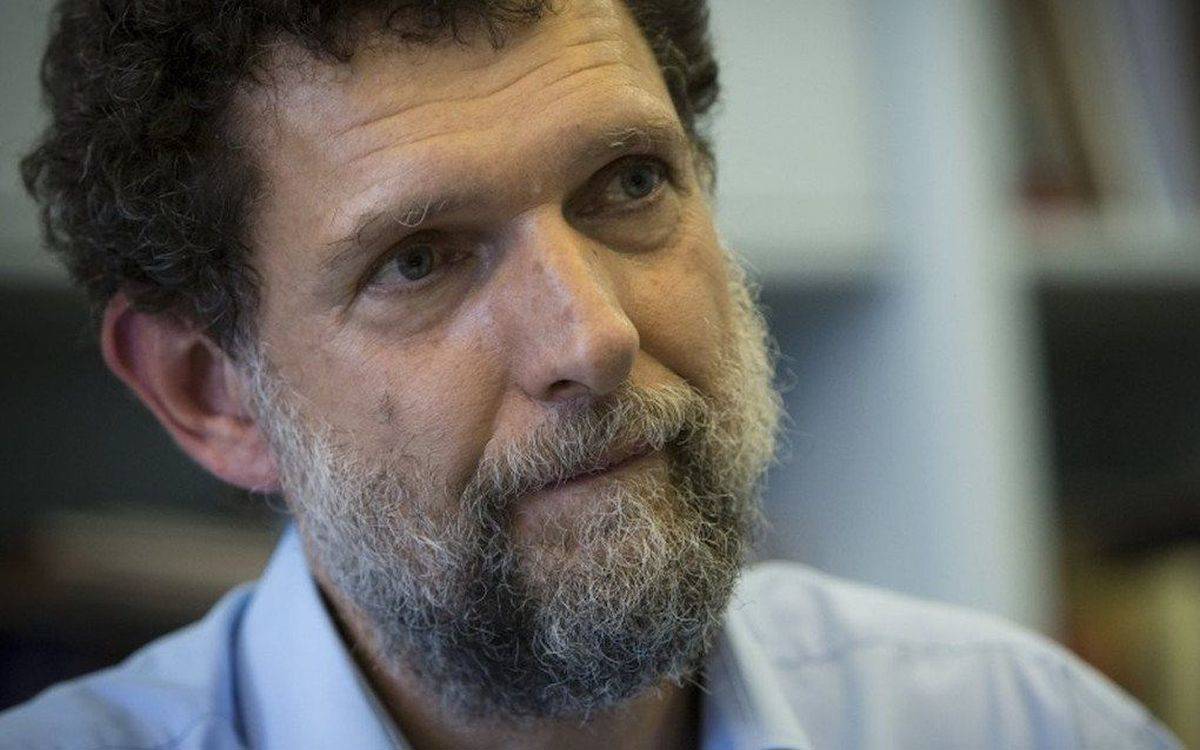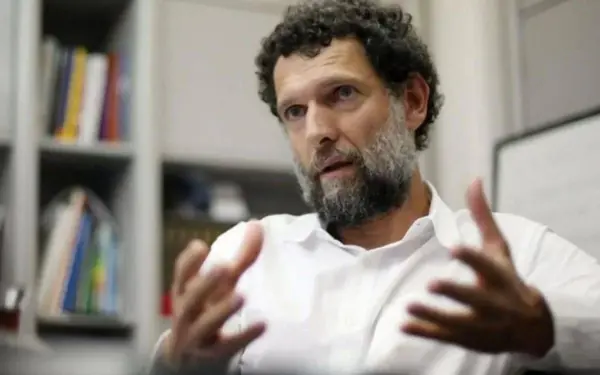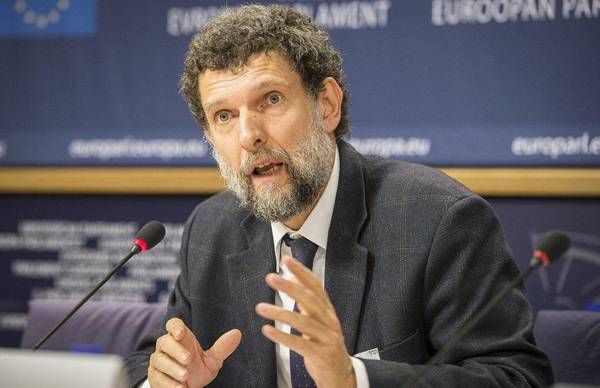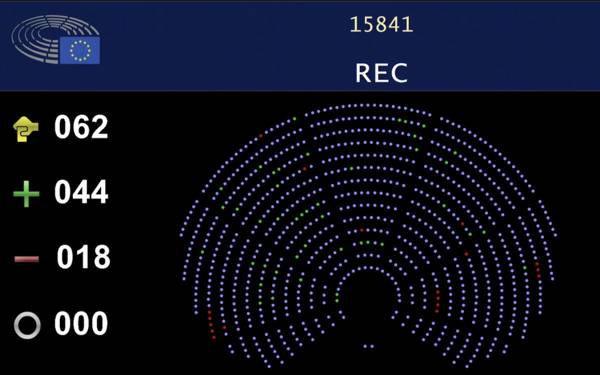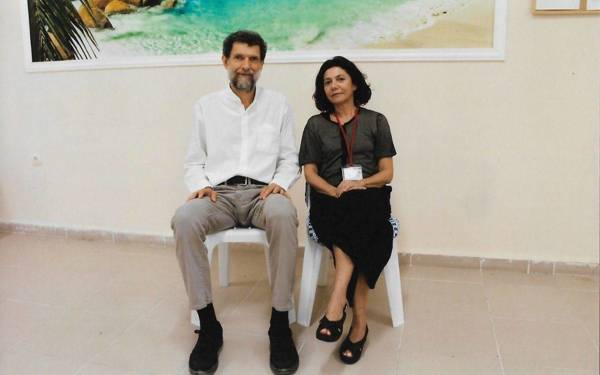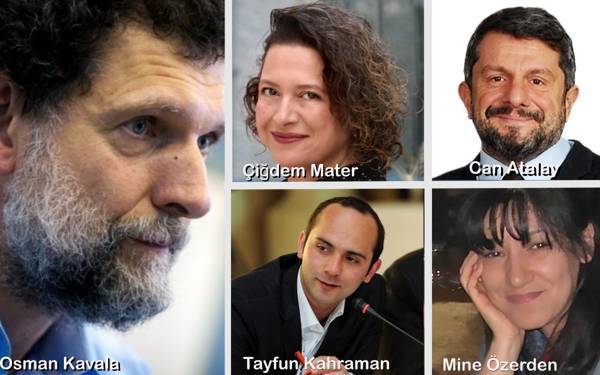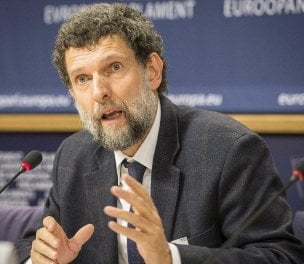Philantrophist Osman Kavala made a statement on the 6th anniversary of his imprisonment in Marmara (Silivri) Prison.
In his written statement, Kavala mentioned the ongoing humanitarian crisis in Palestine and expressed that he couldn't rejoice in being awarded the Vaclav Havel Prize for this reason:
"I have been held in prison for 6 years without any evidence of a crime committed. While I expected this to come to an end, the affirmation of unlawfulness by the Court of Cassation has made my detention conditions more severe.
Being honored with the Vaclav Havel Prize by the Parliamentary Assembly of the Council of Europe, which has also been through imprisonment, gave me pride. However, the act of Hamas attacking civilians and the catastrophe caused by the Israeli bombardment in Gaza did not give me any reason to celebrate. I hope that all international organizations will show more sensitivity to the injustices that nourish the environment of terror and violence causing great suffering in Palestine, and that they will take strong initiatives to establish peace in accordance with international legal norms.
As Havel said, 'the most important thing is not to lose hope.' I have not lost hope that the rule of law will prevail in my country."
The Court of Cassation upheld the aggravated life sentences given to Osman Kavala in the Gezi Park case, as well as the 18-year prison sentences of TIP Deputy, lawyer Can Atalay, TMMOB executive city planner Tayfun Kahraman, film producer Çiğdem Mater, and filmmaker Mine Özerden.
Council of Europe violation process
On December 10, 2019, the European Court of Human Rights (ECHR) ruled that Article 18 of the European Convention on Human Rights (ECHR) was violated in the case of Osman Kavala.
The file was referred to the Grand Chamber after the Committee of Ministers of the Council of Europe, responsible for overseeing compliance with the Court's decisions, initiated a violation procedure regarding the non-implementation of the court's decision on December 10, 2019.
Referring to Article 46/1 of the European Convention on Human Rights, which regulates the "binding nature of judgments," the Grand Chamber announced its decision on July 11, based on Turkey's non-compliance with the ECHR judgment.
Within the context of the violation procedure initiated by the Committee of Ministers of the Council of Europe on February 2, 2022, the decision stated that Turkey failed to fulfill its obligations regarding the ECHR judgments.
The ECHR found a violation of Article 46/1 of the European Convention on Human Rights in this regard. The decision was reached by 16 votes to 1. The sole dissenting vote came from Saadet Yüksel, the only Turkish judge on the court. Yüksel expressed in her dissenting opinion that she did not agree with the majority's view.
On October 12, the Parliamentary Assembly of the Council of Europe (PACE) approved the decision for "the immediate release of Osman Kavala" with a 2/3 majority of those present. In the session, where 62 members voted, 44 members were in favor of the decision, while 18 members voted against it.
According to the decision, if Turkey does not implement the European Court of Human Rights' decision to release Osman Kavala from detention, it may face some sanctions.
Among these sanctions, the most significant ones are the application of the "Magnitsky Legislation" against public officials responsible for Osman Kavala's unjust detention and the activation of the power of the Turkish delegation to challenge the credentials of the Turkish delegation at the first session of the Assembly in 2024 if Osman Kavala is not released from prison by January 1, 2024.
After this decision, if Osman Kavala is not released, "everyone who contributes as a police officer, prosecutor, judge, prison officer, or in any other capacity to the unlawful and arbitrary deprivation of freedom of Osman Kavala and other political detainees in Turkey may face prosecution in European countries for their actions."
Additionally, if Osman Kavala is not released by January 1, 2024, the Turkish delegation to the Parliamentary Assembly of the Council of Europe may be deprived of the right to vote at the Assembly's Winter Session in 2024. (AS/VK)





